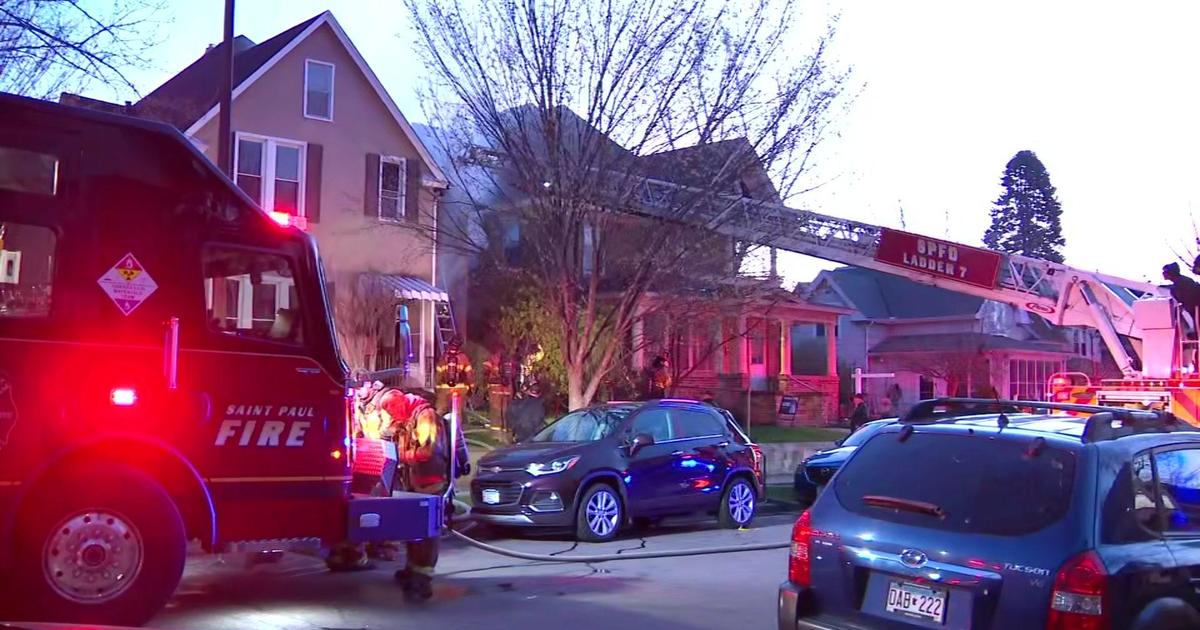A Fee Here, A Fee There In Dayton's Budget
ST. PAUL, Minn. (AP) -- While Gov. Mark Dayton's plan for giant income tax hike made the biggest budget splash, a closer examination of his proposal reveals a smattering of fee increases on consumers and industry professionals far more likely to be enacted.
The budget fine print also shows Dayton, a Democrat, is targeting signature programs of just-departed Republican Gov. Tim Pawlenty for reduction or elimination.
Fees have been a flashpoint at Minnesota's Capitol. They were a rare source of revenue Pawlenty turned to during his tenure, but Democrats who controlled the Legislature railed against them as hidden tax increases. Still, they enacted most of them. Republicans captured both the House and Senate in the last election.
The Department of Minnesota Management and Budget's preliminary tally of new or increased fees shows those costs would rise by at least $56 million under Dayton's plan -- only a sliver of which would go toward repairing the state budget deficit. Much of the money would go into dedicated accounts, connecting the dollars raised to a service offered. Aside from the fees, Dayton would boost the sales tax on car rentals and devote the money to tourism promotion.
Hunting, fishing and other recreational fees would climb. Non-resident anglers would pay $3 more, and boat licenses would rise by up to $20 over the next few years, depending on the size of the watercraft.
The more than 1.3 million annual visitors to the Minnesota Zoo would face higher admission costs, while the board that operates it would deal with a state funding cut of at least 5 percent.
"With budget reductions from the state appropriation that's making that look more and more like something we will implement," said Zoo director Lee Ehmke.
He said the fee hikes had been under consideration with a new penguin exhibit set to open, but now seem unavoidable. He said daily admission is likely to jump $1 to $2 and annual memberships will probably rise $10 to $15.
All background checks connected to licensing through the Department of Human Services would come with a new $20 charge. The department said the move would offset costs for 50,000 background studies conducted annually and may cause some entities to be more discerning with their requests, such as seeking studies on five finalists for a position rather than 10.
Retailers who handle food would pay 15 percent more to the Department of Agriculture. Their licensing fees are connected to their annual sales and currently range from $50 to $2,000. Proceeds pay for the state's food inspection program.
Boxers and mixed martial arts fighters would see their licensing fees jump from $25 to $45. The fees would also apply to referees, promoters, judges and trainers. The money would offset regulatory costs incurred by the Combative Sports Commission.
Nurses from states bordering Minnesota would be asked to pay $50 to practice here. But late fees related to tardy license renewals by Minnesota nurses would go away, costing the state $25,000.
Pharmacies and pharmacists would see their licensing costs rise by a total of $364,000 per year.
Sen. Warren Limmer, R-Maple Grove, said he hadn't had a chance to fully examine Dayton's budget or the fees being suggested. But he doesn't sense the same kind of resistance to fee increases as tax hikes.
"Fees are more seen as a cost of doing business," Limmer said. "Taxes are seen as a means to satisfy a greater state purpose."
Dayton's additional 1 percent in car rental taxes would raise $2.6 million or more that he wants dedicated to tourism marketing. In budget documents, the administration argues that Minnesota's neighbors are putting more money into luring travelers, ultimately costing the state and businesses of hospitality dollars derived from out-of-state visitors.
"This strategy provides a direct link between travel-generated spending and funding for travel promotion," the budget says.
But car rental companies and consumer groups are preparing to voice opposition.
Sally Greenberg, executive director of the nonprofit National Consumers League, said the charge won't just hit visitors and would be an extra burden on those with low incomes.
"The fact is that many consumers who rent cars do so because they can't afford to own cars," she said.
The hundreds of detailed budget pages also shed light on where Dayton looked for savings. Some banner initiatives enacted by Pawlenty would take hits.
Dayton would shut the door to the QComp teacher pay program, which Pawlenty heralded as a nation-leading move toward raises based on performance rather than seniority. The 50 school districts and 54 charter schools in the program would continue getting state incentive money, but about $16.5 million to expand QComp would be canceled.
Dayton would also eliminate the full $4.7 million for Achieve Scholarships. Pawlenty implemented the program in 2008 as a way to reward students who take rigorous courses while in high school and maintain a certain grade-point average at a college in Minnesota.
Budget documents say the state can't afford to keep Achieve going and hopes eligible students will be able to access other financial aid programs.
Spending to administer the Pawlenty-championed JOBZ tax-break program would fall, too.
Tom Hanson, who was Pawlenty's top budget adviser, said he hopes legislative Republicans fight to preserve the programs but he's not surprised to see them under fire.
"It's unfortunate that some of our items are being undone but that's what happens when you have an election and the other party wins," Hanson said, adding, "I didn't see it as a poke in the eye. We did a lot of things over eight years. They're trying to find savings. Why not pick the things that are your predecessor's and not yours?"
(© Copyright 2011 The Associated Press. All Rights Reserved. This material may not be published, broadcast, rewritten or redistributed.)



